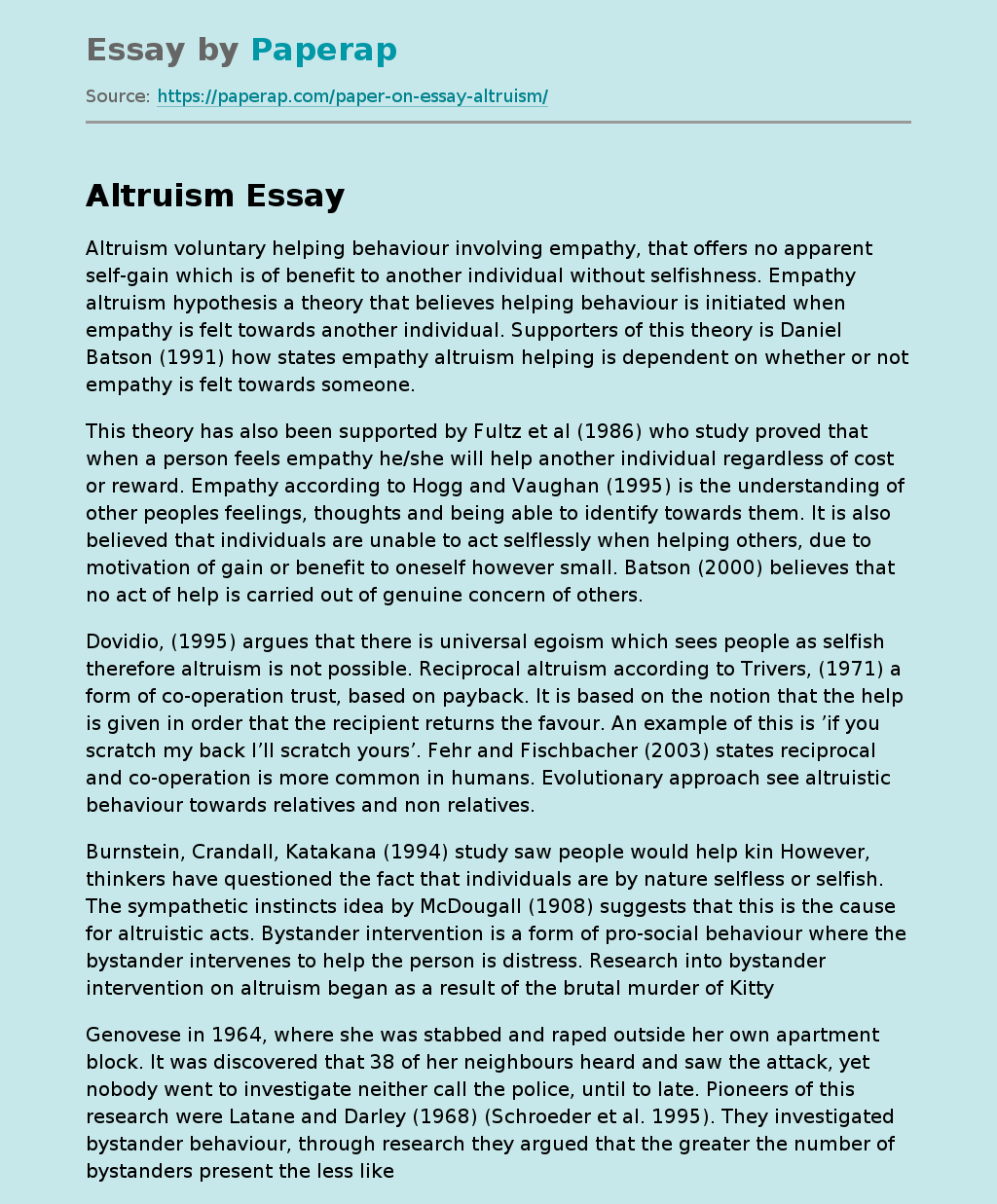Altruism: Selfless Concern for Others
The following sample essay on “Altruism” explores the concept of being active in selfless concern for the welfare of others. Is a person capable of self-renunciation?
Altruism voluntary helping behaviour involving empathy, that offers no apparent self-gain which is of benefit to another individual without selfishness. Empathy altruism hypothesis a theory that believes helping behaviour is initiated when empathy is felt towards another individual. Supporters of this theory is Daniel Batson (1991) how states empathy altruism helping is dependent on whether or not empathy is felt towards someone.
This theory has also been supported by Fultz et al (1986) who study proved that when a person feels empathy he/she will help another individual regardless of cost or reward. Empathy according to Hogg and Vaughan (1995) is the understanding of other peoples feelings, thoughts and being able to identify towards them. It is also believed that individuals are unable to act selflessly when helping others, due to motivation of gain or benefit to oneself however small.
Batson (2000) believes that no act of help is carried out of genuine concern of others.
Dovidio, (1995) argues that there is universal egoism which sees people as selfish therefore altruism is not possible. Reciprocal altruism according to Trivers, (1971) a form of co-operation trust, based on payback. It is based on the notion that the help is given in order that the recipient returns the favour. An example of this is ’if you scratch my back I’ll scratch yours’. Fehr and Fischbacher (2003) states reciprocal and co-operation is more common in humans.
Evolutionary approach see altruistic behaviour towards relatives and non relatives.
Burnstein, Crandall, Katakana (1994) study saw people would help kin However, thinkers have questioned the fact that individuals are by nature selfless or selfish. The sympathetic instincts idea by McDougall (1908) suggests that this is the cause for altruistic acts. Bystander intervention is a form of pro-social behaviour where the bystander intervenes to help the person is distress. Research into bystander intervention on altruism began as a result of the brutal murder of Kitty
Genovese in 1964, where she was stabbed and raped outside her own apartment block. It was discovered that 38 of her neighbours heard and saw the attack, yet nobody went to investigate neither call the police, until to late. Pioneers of this research were Latane and Darley (1968). They investigated bystander behaviour, through research they argued that the greater the number of bystanders present the less likely anybody will help the actual person in distress. This is referred to as the bystander effect.
One of such studies Latane and Darley (1968) carried out proves it notion. Participants who took part in a study were placed in a room filling out questionnaires; white smoke was pumped through the vents of the wall. The study was to define it as an emergency or to just ignore it. Results indicated that when left on their own, 75% reported the smoke, when one other person is present 38% took action to report this, however 62% in a three people group carried on working for the continuation of the experiment, thereby, supporting the bystander effect.
Altruism: Selfless Concern for Others. (2019, Jun 20). Retrieved from https://paperap.com/paper-on-essay-altruism/

